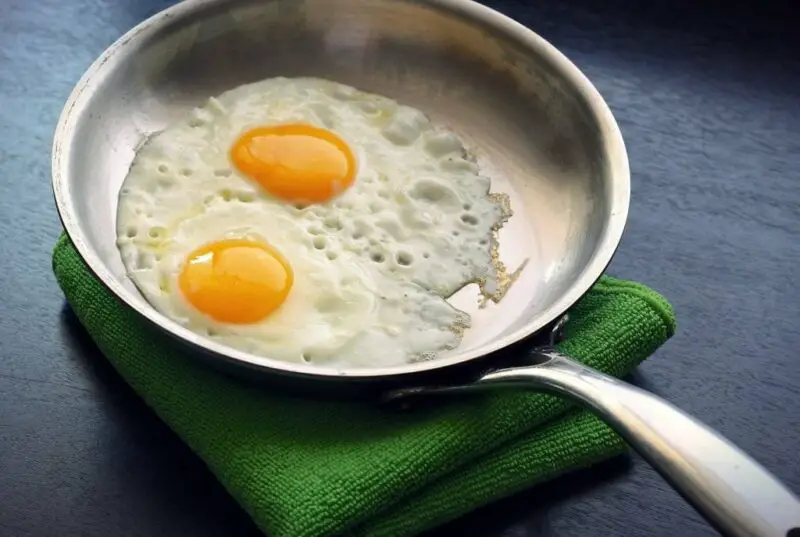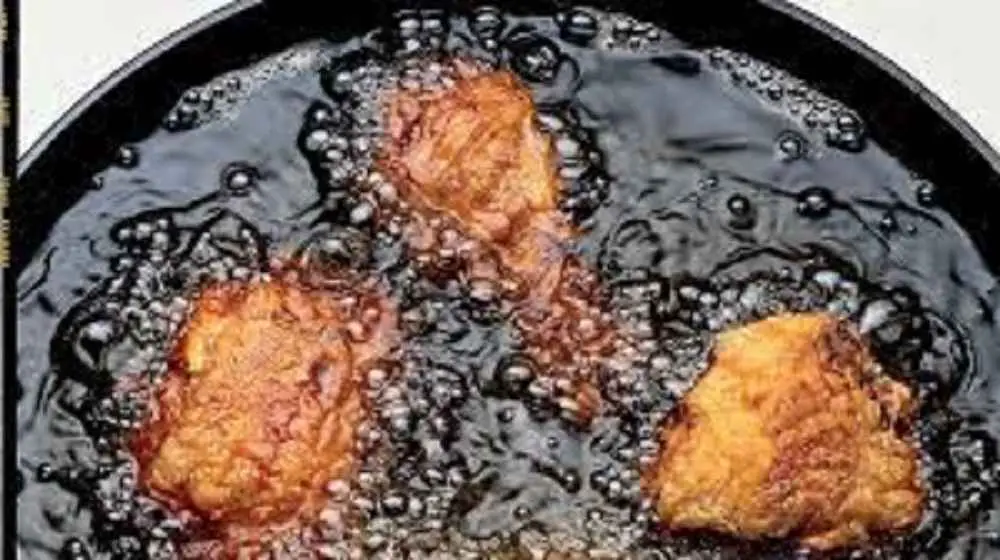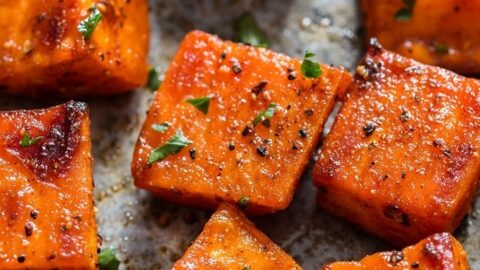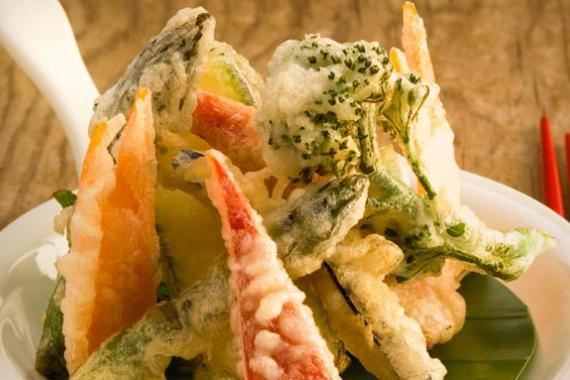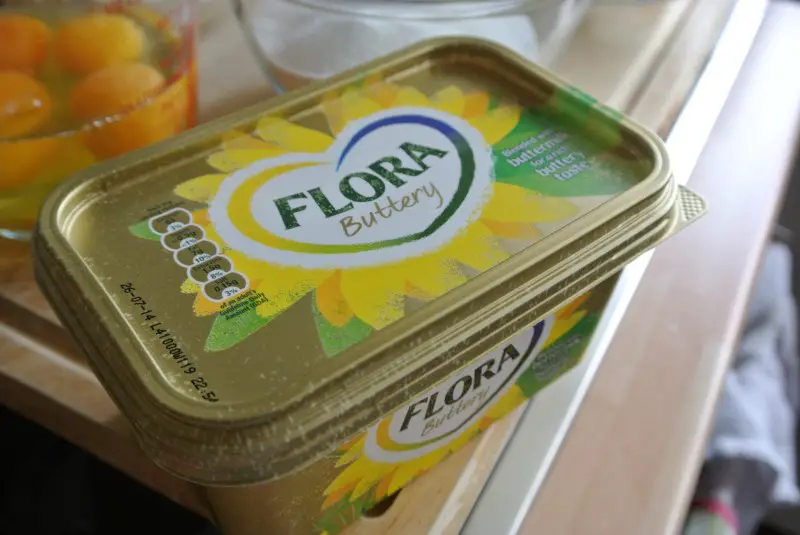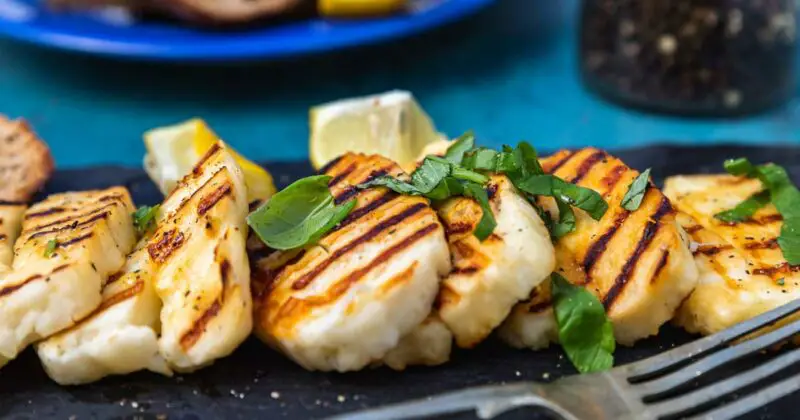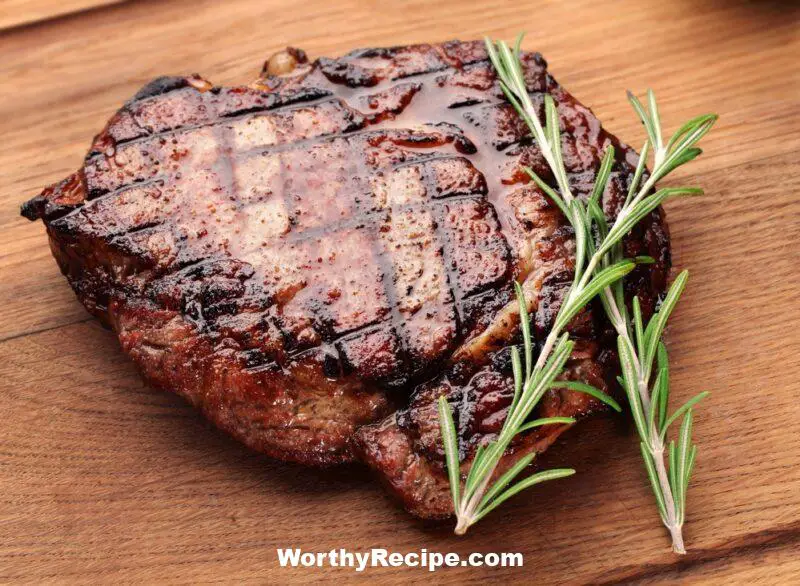Why Can’t You Boil Eggs in Aluminum Pans?
Boiling eggs is a simple task, but choosing the right cookware to use can be tricky. Aluminum pans are commonly used for cooking, but can you boil eggs in them? Unfortunately, this is not recommended due to the reactivity of aluminum with certain foods and its potential toxicity.
The Chemistry behind Aluminum and Eggs
Aluminum is a lightweight metal that has excellent thermal conductivity. It is often used in cookware as it heats up quickly and evenly. On the other hand, eggs have a high protein content and contain amino acids and minerals.
When aluminum pans are heated to high temperatures and combined with acidic or basic substances such as vinegar or eggs, they can react and release toxic particles into your food. This reaction can also cause chemical changes in the food, altering its taste and texture.
The Science behind Boiling Eggs
Boiling an egg may seem straightforward, but there are a few things you need to consider to achieve the desired outcome. The optimal conditions for boiling eggs vary depending on whether you want a soft or hard-boiled egg. The time duration for boiling an egg also varies based on how well-cooked you want it to be.
The key to perfectly boiled eggs lies in preparing them properly before boiling. You should always start with eggs that have been brought to room temperature and place them in a pot with cool water. If you add hot water, the eggs will cook unevenly and may crack.
Conductivity of Aluminum and its Effects when Boiling Eggs
Conductivity refers to how well a material conducts heat or electricity. Aluminum has high thermal conductivity, which means it can transfer heat quickly from the stove’s burner to the food you are cooking.
The downside to using aluminum cookware is that it can react when it comes into contact with certain types of food, such as eggs and acidic substances. This reaction can cause the aluminum to leach into your food, which is not safe for consumption.
Health Risks and Toxicity from Cooking with Aluminum
Exposure to aluminum, particularly through cooking or consuming foods cooked in aluminum cookware, has been linked to several health problems. Studies have shown that long-term exposure to high levels of aluminum can cause dementia and Alzheimer’s disease.
In addition, cooking with aluminum cookware that has scratches or dents can also increase the risk of toxicity as the metal can start to flake off and mix in with your food. Therefore, it is essential to be careful when using aluminum cookware and maintain it properly.
Alternative Cookware Options for Boiling Eggs
If you want to boil eggs without using aluminum cookware, there are various safer options available:
- Earthenware: Earthenware is made from clay and is an excellent choice for boiling eggs as it distributes heat evenly and doesn’t react with acidic substances.
- Stainless steel: Stainless steel is a popular choice for cooking as it is durable, easy to clean, and doesn’t react with acidic substances. However, it does not conduct heat as well as aluminum.
- Copper: Copper pans are excellent at conducting heat quickly and evenly. They are also a beautiful addition to any kitchen. However, they can be pricey and require frequent maintenance.
Choosing the Right Cookware for Your Potentially Carcinogenic-Free Lifestyle
Choosing the right cookware is essential if you want to minimize your exposure to aluminum and other potentially harmful substances. Here are some tips:
- Choose non-stick cookware: Non-stick cookware is excellent for cooking eggs as it prevents food from sticking, requires less oil, and is easy to clean.
- Avoid using metal utensils: Metal utensils can scratch and damage your cookware. This can cause the aluminum to flake off and mix in with your food, which is not safe for consumption.
- Opt for glass or ceramic storage containers: Glass or ceramic containers are a great way to store food without the risk of contamination from aluminum or plastic containers.
It is also important to note that other carcinogens can be present while cooking, such as burnt fats or oils that release toxic fumes. Therefore, it’s essential to choose the right cooking surfaces and storage alternatives to maintain a healthful lifestyle.
Non-Toxic Egg Boiling Tips and Tricks
If you want to boil eggs safely and effectively with safer materials, here are some essential tips and tricks:
- You must use a pot large enough to fit all your eggs without overcrowding them.
- Add cold water to your pot until it covers the eggs by an inch or two.
- Bring the water to a boil over high heat, then reduce the heat to low for a gentle simmer.
- The ideal cooking times vary based on how well-cooked you want your eggs but, at an average, you should set a timer between 7-9 minutes for soft-boiled, 10-12 minutes for medium and 13-15 minutes for hard-boiled eggs.
The Art of Making Perfect Eggs
There are several ways to boil eggs, but here are the basic steps for achieving perfectly boiled eggs:
- Hard-boiled Eggs: Start with cold water and bring it to a boil. Once boiling, remove from heat and cover for 10-12 minutes. If you want your eggs softer or firmer, adjust the cooking time accordingly.
- Soft-boiled Eggs: Start with cold water and bring it to a boil. Once boiling, remove from heat and cover for 4-6 minutes to achieve desired consistency.
- Medium Cooked Eggs: Preheat your oven to 350°F. Place your eggs in a muffin tin and bake them for about 12-15 minutes, depending on how well you want them cooked.
Keeping Your Cookware in Top Condition
Maintaining your cookware properly is essential if you want it to remain safe for use. Here are some tips on how to do this:
- Clean your cookware with gentle cleaning agents and avoid using abrasive sponges or pads that can scratch the surfaces.
- Avoid stacking cookware directly on top of each other as it can cause scratches or dents.
- Store cookware in a clean, dry place where they won’t be exposed to high humidity levels that can cause damage over time.
Conclusion
In conclusion, boiling eggs in aluminum pans is not recommended due to the potential reactivity of aluminum with acidic substances such as eggs. Instead, try opting for safer alternatives such as earthenware, stainless steel, or copper pots and pans.
If you want to maintain a healthful lifestyle, it is essential to choose cookware that minimizes your exposure to aluminum and other carcinogens. Additionally, there are various non-toxic egg boiling tips and tricks you can follow to achieve the perfect boiled egg every time.
Lastly, don’t forget to maintain your cookware properly to ensure it remains safe for use. With the right cookware and proper care, you’ll be boiling eggs safely and effectively in no time!
What happens when you boil eggs in aluminum pans?
Aluminum is a reactive metal that can cause a chemical reaction when it comes in contact with acidic or alkaline substances like vinegar or lemon juice. Boiling eggs, which are slightly acidic, in an aluminum pan can cause the surface of the pan to corrode and leach into the eggs, altering their color, taste, and texture.
What is the best material for boiling eggs?
Stainless steel, glass, or ceramic cookware are ideal materials for boiling eggs as they are non-reactive and do not interact with food. They also evenly distribute heat for consistent cooking results and are easy to clean.
Can you use aluminum foil to boil eggs?
It is not recommended to use aluminum foil to boil eggs as it can easily tear and lead to uneven cooking. Additionally, boiling water may cause the foil to get hot and potentially burn your hands.
How can I prevent my eggs from sticking to the pan?
To prevent eggs from sticking to the pan while boiling, try placing them in cold water before adding them to the pot. This will help them cook more evenly and prevent cracks. Also, avoid overcrowding your pan and make sure there is enough water to cover the eggs completely.
